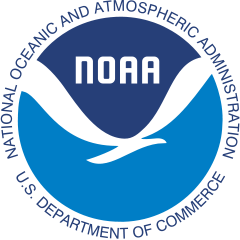GFDL News & Events
Visitors without GFDL affiliation attending seminars or other organized events must present government or university issued photo ID or two other forms of identification to gain access to the facility. If an acceptable ID cannot be provided, the Visitor will not be allowed access. If access is granted, the Visitor must sign in and be given a Visitor Badge. The Visitor Badge expires immediately after the seminar.
Jing Feng, David J. Paynter (GFDL), and Raymond Menzel (formerly GFDL) were recognized for authoring one of the Top 10% Most-Viewed Papers in Journal of Geophysical Research: Atmospheres in 2023. Their paper, “How a Stable Greenhouse Effect on Earth Is Maintained Under Global Warming,” examines how Earth maintains energy balance as surface temperatures rise. Using […]
May 27th, 2025 - Research on Greenhouse Gas Signatures is Top Viewed Article in GRL for 2023
Shiv P. Raghuraman, David J. Paynter (Leader, Atmospheric Physics Division, GFDL), V. “Ram” Ramaswamy (Director, GFDL), Raymond Menzel, and Xianglei Huang have been recognized for authoring one of the top viewed articles in Geophysical Research Letters for 2023. Their paper, “Greenhouse Gas Forcing and Climate Feedback Signatures Identified in Hyperspectral Infrared Satellite Observations”, analyzes nearly […]
November 20th, 2024 - GFDL a Partner in NOAA’s Changing Ecosystems and Fisheries Initiative
From warming waters and rising seas to melting sea ice and changing ocean pH, climate change is having major impacts on the nation’s marine and Great Lakes resources. In order to effectively prepare for and combat the effects of climate change, policymakers need robust historical simulations, as well as forecasts and projections, about how ocean […]
A comprehensive understanding of methane’s contribution as a greenhouse gas in the atmosphere, crucial for effective climate mitigation policies, remains elusive due to the overlap of natural (wetlands) and anthropogenic (natural gas, agriculture, sewage, landfills) sources. Larry Horowitz and Vaishali Naik, both Physical Scientists at GFDL, are co-Principal Investigators on a study that was awarded […]
GFDL recognizes National Intern Day and celebrates the contributions of our gifted interns. This year, in partnership with Princeton University, GFDL welcomed its largest group ever—23 talented students from a range of internship programs, such as NOAA’s Educational Partnership Program with Minority Serving Institutions Cooperative Science Centers, NOAA Experiential Research and Training Opportunities, the Ernest […]


